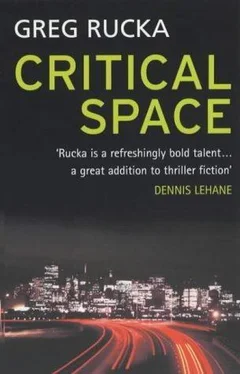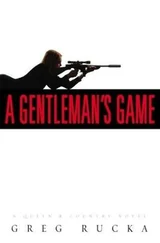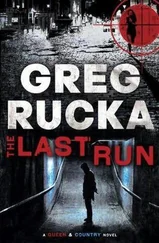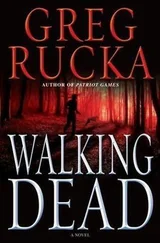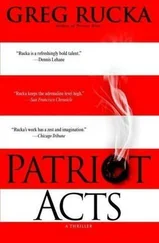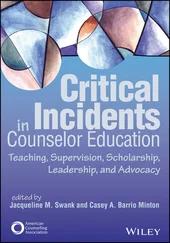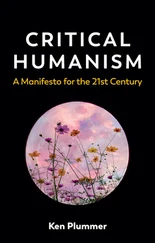Greg Rucka - Critical Space
Здесь есть возможность читать онлайн «Greg Rucka - Critical Space» весь текст электронной книги совершенно бесплатно (целиком полную версию без сокращений). В некоторых случаях можно слушать аудио, скачать через торрент в формате fb2 и присутствует краткое содержание. Жанр: Триллер, на английском языке. Описание произведения, (предисловие) а так же отзывы посетителей доступны на портале библиотеки ЛибКат.
- Название:Critical Space
- Автор:
- Жанр:
- Год:неизвестен
- ISBN:нет данных
- Рейтинг книги:4 / 5. Голосов: 1
-
Избранное:Добавить в избранное
- Отзывы:
-
Ваша оценка:
- 80
- 1
- 2
- 3
- 4
- 5
Critical Space: краткое содержание, описание и аннотация
Предлагаем к чтению аннотацию, описание, краткое содержание или предисловие (зависит от того, что написал сам автор книги «Critical Space»). Если вы не нашли необходимую информацию о книге — напишите в комментариях, мы постараемся отыскать её.
Critical Space — читать онлайн бесплатно полную книгу (весь текст) целиком
Ниже представлен текст книги, разбитый по страницам. Система сохранения места последней прочитанной страницы, позволяет с удобством читать онлайн бесплатно книгу «Critical Space», без необходимости каждый раз заново искать на чём Вы остановились. Поставьте закладку, и сможете в любой момент перейти на страницу, на которой закончили чтение.
Интервал:
Закладка:
"Right bloody here. Those don't leave my sight."
"I'm not going to steal them."
"I'm committing an act of treason for you." He sounded angry. "That should give you some idea of the measure of my trust. But trust you as I do, I don't want to leave and find out someone else blew through here and walked out with Her Majesty's documents. So I'll stay. You can order up some dinner. But those papers never leave my sight."
"The menu's by the phone," I told him, and then sat down at the desk and opened the first folder.
The files had been prepared by someone in military intelligence, using data compiled from a wide variety of sources that included British Intelligence, Interpol, the DEA, and the CIA. As I began working, Moore told me that one of the problems had been in actually assembling the data; apparently no one had ever bothered to try and track down Oxford's money man before.
"Bloke who helped me on this didn't give you much hope," Moore told me as I got started.
There were files on five men, each of whom had earned government or law enforcement attention through their financial dealings. The files were piecemeal assemblies, printouts and copies and faxes and copies of copies and copies of faxes, slips of paper stapled together, the occasional photograph. It took me nearly an hour just to get everything sorted into usable piles. Once I had that done, though, things went fairly quickly, mostly because I knew what I was looking for.
The first file was of an Englishman named Meadows living in London and employed by Lloyd's. A notation in the file said he was on his third marriage, no children. Along with the personal data were copies of various police reports, indicating two arrests for drunk driving and one for the solicitation of a prostitute who had turned out to be an undercover officer. Meadows had earned his file courtesy of the DEA, who suspected him of laundering money for a group of arms dealers out of the Middle East.
There was no way Alena would have trusted this guy with her money.
The next file was on a Swiss named Junot, an attorney in his early forties, living in Geneva, on the lake. Employed by Brunschwig Wittmer, twenty-two years of service. His personal information was at the bottom of the file, stated that he was divorced and that his ex-wife and their nine-year-old son had subsequently died in an avalanche during a skiing holiday in the Alps. He had earned Interpol's notice by purchasing a marble bust of Nike at an auction three years earlier, and the only reason they'd noticed him at all was that the seller had been the point man for an organization out of Turkey that trafficked in a lot of heroin. A note queried where Junot had gotten the money to purchase the statue, but the investigation had apparently ended there when no one could find a connection between him and the seller other than that single transaction.
He was a possible, and I set him aside.
The third was an American named Collier who worked for Bank of America, which I found kind of amusing. Collier specialized in loans for foreign development, was in his late thirties, married with three children, all girls. He was also financing foreign loans, and while many of those loans had been high-risk, that wasn't what had earned him CIA attention: six years ago he'd gone to China on some sort of trade junket and begun an affair with a woman who said she was in software development in Taiwan, but was actually part of the Chinese Security Force. Collier had been leaking her technology information as opportunity allowed.
Another discard.
The fourth was another Swiss, living in Zurich, named Blanc. I discarded him immediately when I saw that he had served ten years for killing a pedestrian in a hit-and-run accident. I never bothered to see why he'd made the file.
The fifth was a South African named Martins, single, never married, fifty-six years old. He was another banker, and had been identified by Interpol, the DEA, and the CIA as a bookkeeper for the Sicilian mafia, though apparently that employment had ended some ten years ago.
He, too, was a possible.
It was nearly one when I finished going through the paperwork.
"Any joy?" Moore asked.
"Maybe. I've got two guys here that I'd trust to do the job if it were mine. The others are all too unreliable – either histories with drugs or the authorities or potential personality problems that would make them untrustworthy."
Moore moved from where he'd been slumped on the couch, watching television, and came to the desk, looking over my shoulder. "Fifty-fifty chance."
"Problem is I don't have time for those odds," I said. "I'm leaning toward Junot."
"Let me see."
I handed the folders over, then got up and went to the window. There wasn't much of a view, just scattered lights filtering through the fog. I heard Moore rustling papers as he flipped through the files.
"Why Junot?" he asked.
"No prior history."
"Martins is pretty clean."
"But he's known."
"Oxford an American?"
"I'm pretty sure he is."
"That would connect him with the CIA."
"And Martins is known to the CIA."
"What I'm thinking, yes."
"No. The more I think about it, the more it's got to be Junot if it's any of them."
"You don't think the dead wife and child would be a problem?"
"It's a bonus, actually. Junot's isolated, doesn't have people. Won't be talking to anyone about the money."
"People who collect ancient pieces of art tend to show it off."
"Depends why they like the art. You look at Junot's file, you tell me if that looks like the kind of man who shows off. To me it reads like a man who spends an awful lot of his time alone."
"Martins…" Moore mused. "Looks like he's a homosexual. Mid-fifties, never married. Could mean he's discreet."
"Problem is that the file doesn't actually say that he's queer," I said. "Which could mean he's so far in the closet, it's an issue for him. That could be used against him as blackmail. It would make him a potential risk."
"In this day?" Moore asked.
"I've never been to South Africa, I don't know what the public perception of gays there is." I turned and went back to the desk, gathered up the remaining files and handed them to Moore, who dropped them back in the briefcase. "Thanks."
"You're welcome." He latched the case shut. "This isn't the kind of thing I do for just anyone, you understand that."
"I do. And I appreciate the risk you've taken."
"It levels the field."
"I thought this was just business."
"If it was just business, I'd have told you to sod off when you called this morning. You need anything else?"
"Actually, I do," I said. "This should be easier, though. I need a contact in Austria, someone who'd be willing to make a couple bucks doing something marginally illegal."
"How much and how marginal?"
"Say ten grand? They'd have to open an account for me at a bank, a specific kind of account. The account has to be opened by an Austrian national, and I don't have the German or the papers to do it myself."
He took his coat from the back of the chair, slipping into it, thinking. "There's a woman I know, she could do it. I'd have to ask her first, of course."
"Of course," I replied. "It may be a couple of days before I need her."
He took the briefcase off the bed. "Give me a call when you do."
"I will," I said.
When he reached the open door, Moore said, "You're walking a very narrow rope. Be careful you don't fall off."
"I'm not going to kill anyone, Robert…"
"See that you don't."
"At least no one who doesn't have it coming," I said, shutting the door after him.
Chapter 6
The alarm began sounding a warning the moment the man opened the door for me, and before he got any ideas I shoved him the rest of the way through, jamming the barrel of the Browning against his neck. He nearly fell as we came over the threshold but I jerked him back to his feet and when his ear was closer to my mouth, I said one of the phrases I'd been practicing since leaving London almost fifteen hours earlier. I'd practiced it in French, German, and Italian, not knowing which language I would need, and while I wasn't sure I had captured the letter of my order in each language, I know my tone made the spirit plain.
Читать дальшеИнтервал:
Закладка:
Похожие книги на «Critical Space»
Представляем Вашему вниманию похожие книги на «Critical Space» списком для выбора. Мы отобрали схожую по названию и смыслу литературу в надежде предоставить читателям больше вариантов отыскать новые, интересные, ещё непрочитанные произведения.
Обсуждение, отзывы о книге «Critical Space» и просто собственные мнения читателей. Оставьте ваши комментарии, напишите, что Вы думаете о произведении, его смысле или главных героях. Укажите что конкретно понравилось, а что нет, и почему Вы так считаете.
